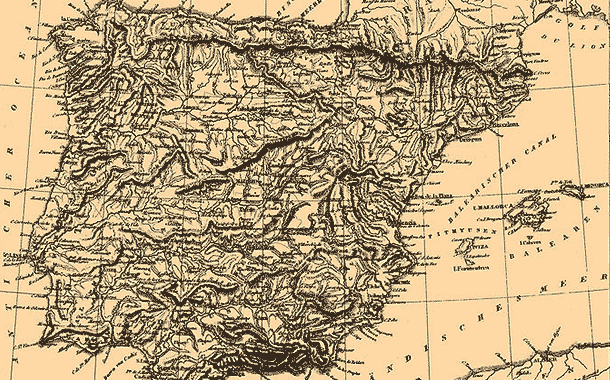<![CDATA[On October 1st 1936, General Francisco Franco was made leader of the new Nationalist regime in Spain. By this point nationalist forces had defeated a host of Republican strongholds and were approaching Madrid. Franco was considered the most important leader in the Nationalist's fight, which led to him being given control of the Nationalists, and eventually the country. The Spanish Civil War itself would continue to rage for another three years, but the events of 1st October laid the foundations of the totalitarian government that would rule Spain until 1975, and come to define much of the country's history in the middle of the twentieth century. Franco was born in 1892, and would only officially relinquish power in Spain at his death in 1975. He was born into a family with strong ties to the Spanish military, and was educated at the Toledo Infantry Academy between 1907 and 1910. His early career was spent stationed in Spanish Morocco, where he built a reputation as a formidable leader for his role in the fight against Moroccan freedom fighters. In 1927 he was promoted to general and made head of the Saragossa military academy. By 1936 he was Chief of Staff of Spain's military. Although his early military career was spent avoiding involvement in politics, a portent of his future role occurred in 1934. Franco was ordered to suppress a major coal miner strike in the Asturias, an event that was escalating into revolutionary action. The strikers had created a Soviet, an action that threatened to trigger the spread of Socialism through Spain. Franco quickly and brutally ended the strike and restored normality to the region. It marked out his reputation as ruthless leader, and clearly illustrated his attitudes towards the threat of left-wing politics in his home country. Elections in February 1936 saw a leftist coalition government come to power in Spain. Franco was quickly dispatched to an obscure command somewhere in the Canary Islands, significantly reducing his influence. A group of high ranking army officers in Spain began to formulate plans for a military coup, with the justification of preventing the left-wing government delivering the country into Communist revolution. After some hesitation, Franco decided to join the coup. On July 17th 1936, the Spanish Civil War started in Morocco with Nationalist forces seizing the region, before heading to the mainland. The conflict didn't officially end until March 1939, when Franco's forces finally took Madrid, and he was made dictator of Spain. The conflict had been a long and devastating one. Nazi Germany and Fascist Italy had lent direct military support to the Nationalist forces. The Republicans had received support from the USSR, as well as international volunteers with left wing sympathies - something depicted in George Orwell's 'Homage to Catalonia'. Despite the fundamentally undemocratic nature of Franco's rise to power, his government was quickly recognised by France, Great Britain and the USA, as well as Germany and Italy. This is reflective of the mood in Europe at the time - the sense that Communism was the greatest threat to the status quo. For all of their faults, the Spanish Nationalists were viewed as a barrier to the spread of Communism in Spain, stopping it becoming a stepping stone to the rest of Western Europe. Franco's clear anti-Communism would become important again after the Second World War. Despite Spain's neutrality in the War, the country was viewed as a troubling anachronism - the last dictatorship in Western Europe. The advent of the Cold War however saw the US form a strong partnership with Spain, supplying huge amounts of financial aid in exchange for military bases in the country. This financial aid was crucial in keeping Franco in power - kick starting an economy that was struggling to support its population. In the last years of his life, Franco set about trying to modernise the Spanish economy, and gradually liberalising the authoritarian regime. The establishment of Franco's dictatorship had involved force and atrocity, but by the late sixties it mellowed as resistance to it was restricted to terrorist activity by Basque terrorists. When Franco died in 1975, King Carlos became the leader of Spain, and immediately started the process of returning democracy to the country.]]>
Franco's Ascent to Power
